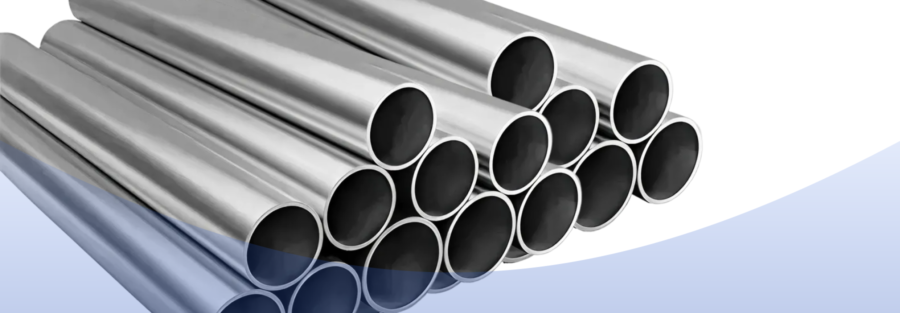Table of Contents
1. Introduction
When it comes to industrial piping, boilers, and heat exchangers, Alloy Steel is one of the most trusted materials. Known for its superior strength, corrosion resistance, and durability, it’s a preferred choice across industries such as oil & gas, power plants, and petrochemicals.
But not all alloy steel grades are the same. Among the most widely used are P5, P9, and P11 alloy steel — each designed for specific temperature and pressure applications. Understanding their differences helps engineers and buyers choose the right material for long-term performance and safety.
2. What Is Alloy Steel?
Alloy Steel is made by combining iron with various alloying elements like chromium, molybdenum, nickel, and vanadium. These additions enhance alloy steel properties such as:
- High tensile strength
- Better corrosion and oxidation resistance
- Improved hardness and toughness
- Superior performance at high temperatures
This makes it ideal for critical industrial uses where ordinary carbon steel cannot perform efficiently.
If you’re sourcing high-quality materials, working with a trusted alloy steel supplier ensures you get certified grades with consistent mechanical properties.
3. Key Differences Between P5, P9, and P11 Alloy Steel
| Property / Feature | P5 Alloy Steel | P9 Alloy Steel | P11 Alloy Steel |
|---|---|---|---|
| Main Elements | 4–6% Chromium, 0.4–0.6% Molybdenum | 8–10% Chromium, 0.9–1.1% Molybdenum | 1–1.5% Chromium, 0.9–1.1% Molybdenum |
| Temperature Resistance | Up to 600°C | Up to 700°C | Up to 650°C |
| Corrosion Resistance | Good | Excellent | Moderate |
| Strength at High Temp | Moderate | High | Medium-High |
| Common Applications | Power plants, refineries | Chemical plants, boilers | Heat exchangers, pressure vessels |
P5 Alloy Steel
P5 is known for its balanced combination of strength and corrosion resistance. It’s often used in refineries and power generation units where moderate temperatures and pressures are common.
P9 Alloy Steel
P9 offers higher chromium and molybdenum content, which means excellent oxidation and creep resistance. It performs exceptionally well in high-temperature steam lines and chemical industries.
P11 Alloy Steel
P11 is a low-alloy steel that delivers good weldability and thermal stability. It’s widely used for pressure vessels, heat exchangers, and high-pressure piping systems.
4. Applications of Alloy Steel Grades
Different alloy steel grades serve specific industrial purposes:
- P5 → Ideal for refineries, heat exchangers, and seamless pipes
- P9 → Used in boilers, high-pressure vessels, and superheaters
- P11 → Suited for headers, pipelines, and power plant applications
5. Why Choose the Right Alloy Steel Supplier?
Selecting the right alloy steel supplier in Mumbai or anywhere in India can directly impact your project’s performance and safety. Reliable alloy steel suppliers in India ensure:
- Certified chemical composition and mechanical properties
- Timely delivery of high-quality grades (P5, P9, P11, etc.)
- Custom dimensions and heat treatment options
If you’re sourcing for large-scale industrial needs, partner with reputed alloy steel manufacturers in India who understand technical specifications and can provide material traceability.
6. FAQs
P5, P9, and P11 are low-alloy steels designed for high-temperature and high-pressure applications.
- P5: Moderate strength and corrosion resistance, ideal for refineries and power plants.
- P9: Higher chromium and molybdenum content, excellent for boilers and superheaters.
- P11: Good weldability and thermal stability, suitable for heat exchangers and pressure vessels.
Choosing the right grade ensures optimal performance, safety, and durability in industrial systems.
Alloy steel offers high tensile strength, corrosion resistance, and thermal stability, making it ideal for critical applications like piping, boilers, and heat exchangers. Its enhanced properties over carbon steel ensure reliability under high temperature and pressure, reducing maintenance costs and improving operational safety.
- P5: Refineries, heat exchangers, and moderate-temperature piping.
- P9: Boilers, high-pressure vessels, and chemical plants.
- P11: Heat exchangers, headers, pipelines, and power plant systems.
Using the correct grade for your specific application maximizes efficiency and equipment life.
A reliable supplier ensures:
- Certified chemical composition and mechanical properties.
- Timely delivery of P5, P9, P11 grades.
- Custom dimensions and heat treatment options.
Partnering with a trusted alloy steel manufacturer in India guarantees material traceability, consistent quality, and compliance with industrial standards.

